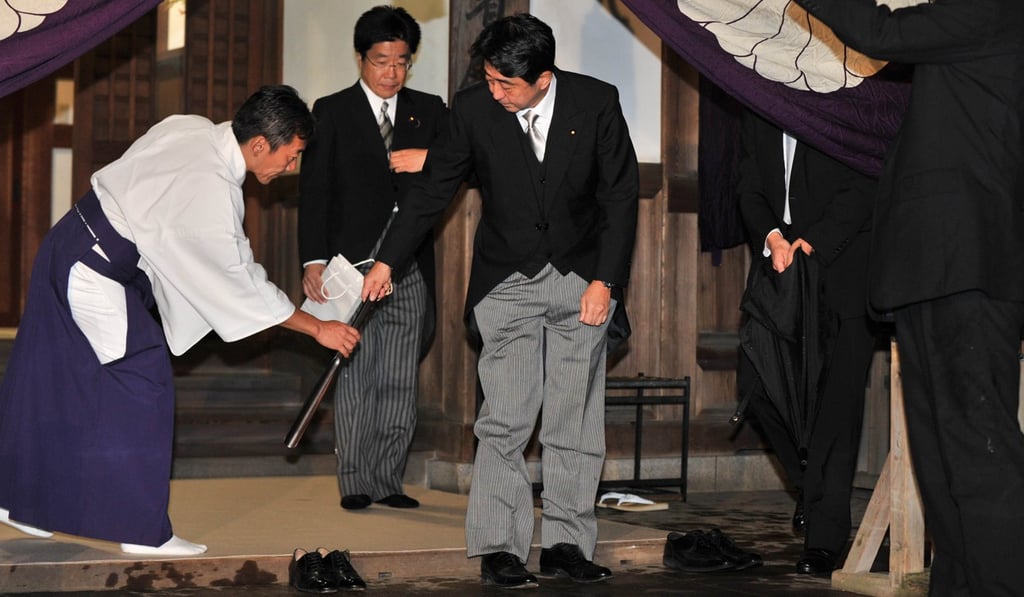Advertisement
Explainer | Explained: Shinzo Abe
- If he is still in office in November 2019, Abe will overtake Taro Katsura as Japan’s longest-serving prime minister
- Abe’s time in power has been marked by his signature economic reforms and a more hawkish foreign policy
Reading Time:4 minutes
Why you can trust SCMP

Shinzo Abe, the current prime minister of Japan, has led the Liberal Democratic Party (LDP) since 2012. Abe has become best known for his push to revitalise the country’s economy and for his plan to reform Japan’s pacifist constitution.
Advertisement
His views on Japan’s wartime past have often put him at odds with South Korea and China.

Rise, fall and return
Abe was born in 1954 in Tokyo to a political family. His grandfather, Kishi Nobusuke, was imprisoned as a suspected war criminal before serving as prime minister between 1957 and 1960. His great-uncle, Eisaku Sato, held the same position between 1964 to 1972.
Abe studied political science in the 1970s in the US. He joined the LDP and in 1982 became the secretary to his father, Abe Shintaro, who was serving as foreign minister.
Abe became popular just after the turn of the century, thanks in part to his tough stance against North Korea, first as a government official, and then as prime minister. He has consistently called for the return of 17 Japanese citizens abducted by North Korean operatives from 1977 to 1983. Only five have been returned alive. Abe has also taken a hard line on the denuclearisation of the Korean peninsula.
Advertisement
In July 2006, he became prime minister and was Japan’s youngest leader since Fumimaro Konoe in 1941. However, by September 2007, his popularity had plummeted due in part to a series of financial scandals, causing his party to lose control of the upper house. Abe resigned and Yasuo Kukuda became prime minister.

Advertisement